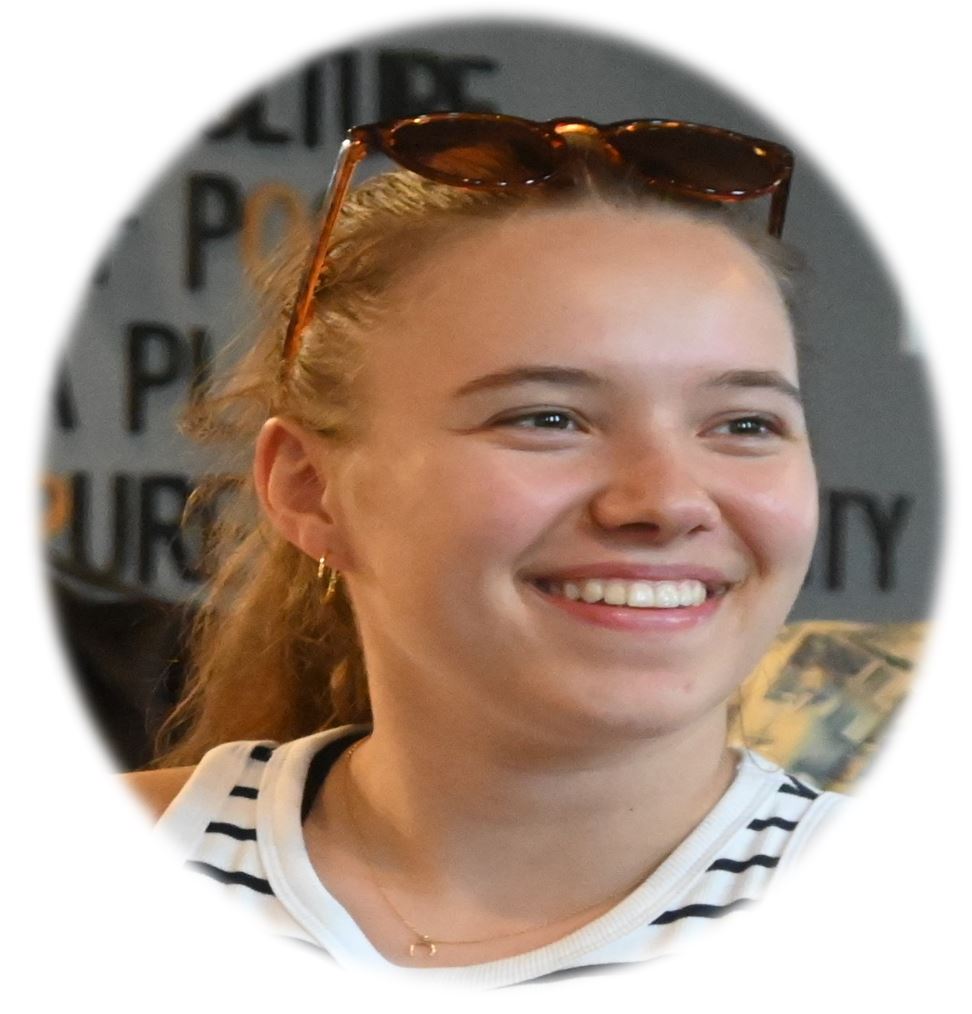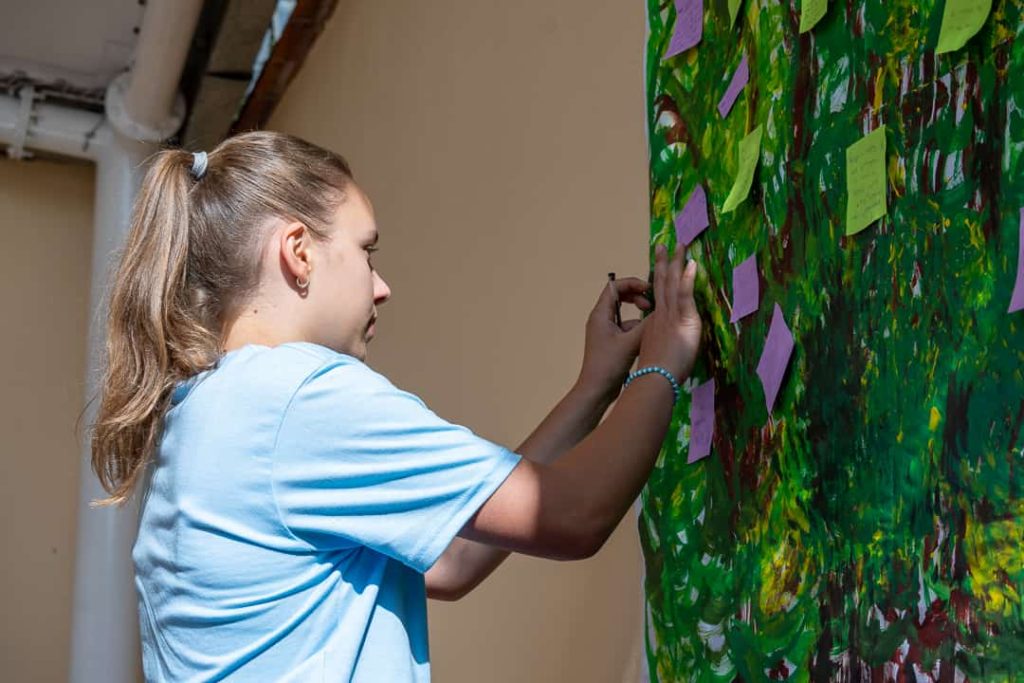“Open every door you possibly can”
Interview with three German alumni from Cast A 23
by Bettina Dommnich (B 93)
A Sunday morning in March. Zoom meeting with Leni Weichardt, Nele Mohr and Jakob Schobloch. The three of them were part of Cast A 23 last summer and traveled through Mexico, Guatemala, Colombia and Costa Rica from July to September. What impact did the tour have on them? What particularly impressed them and what plans do they have now? They talk about this in the interview.
Finding a common date for this interview was not so easy. They are all back to their everyday lives and have packed schedules – so full that the other three German cast members couldn’t make it to the interview. Nele, Leni and Jakob sit somewhat tiredly in front of their screens, a cup of tea or coffee in their hands.
How nice that our conversation worked out. When I see you with your cups: Which drink from your trip would you like to drink right now?
Jakob: I would like a Mexican horchata – rice milk with cinnamon and honey.
Leni: I feel the same way. At first I thought of Starbucks though, we went there a lot during our tour.
Nele: I particularly liked the juice made from green cactus fruits. It was freshly squeezed at the market.
Nele, I have a question for you straight away. Leni and Jakob are children of alumni parents and knew at least a little about what to expect. But you didn’t know Up with People beforehand?
Nele: Not at all. I only heard about it in May 2023 through Monique Bammer, a friend of my mother’s, who traveled herself in 1998.
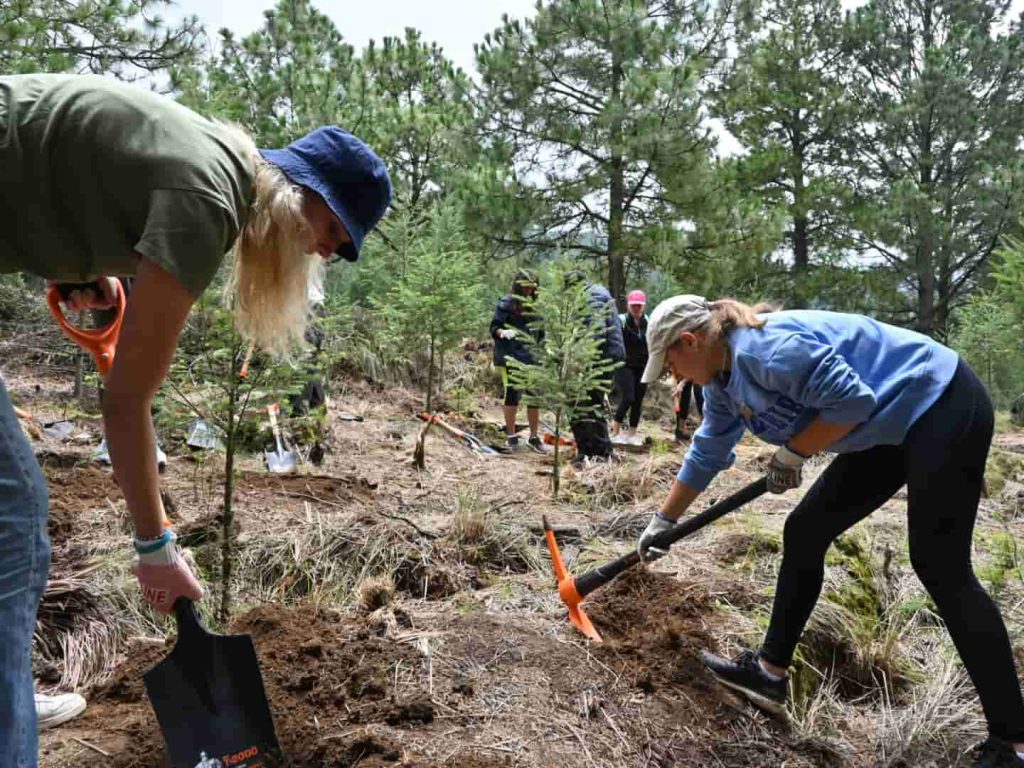
How was the start of the UWP adventure for you?
Nele: Well, I arrived in Mexico a week later and was ill straight away. So I didn’t really notice the first two weeks. But I was warmly welcomed right from the start and had a cool roommate. Leni, did you enjoy staging the most?
Leni: Yes, but I don’t know whether it was the staging itself or just those first two weeks. That was the most intensive phase, when we all got to know each other and had to adjust to the situation of not being alone 24 hours a day. I was surrounded by these great people and could just spend time with them. We were far away from home, in a different country and spoke a different language all day. I think that was more what made these two weeks so formative for me.
Jakob: That was also one of the best parts for me, if only because of the co-living situation, when we lived together like in shared flats. We were five or six guys who could do whatever they wanted every evening, and we had a big roof terrace where we sat out late into the night. After two days, I already felt like I’d known everyone for two months.
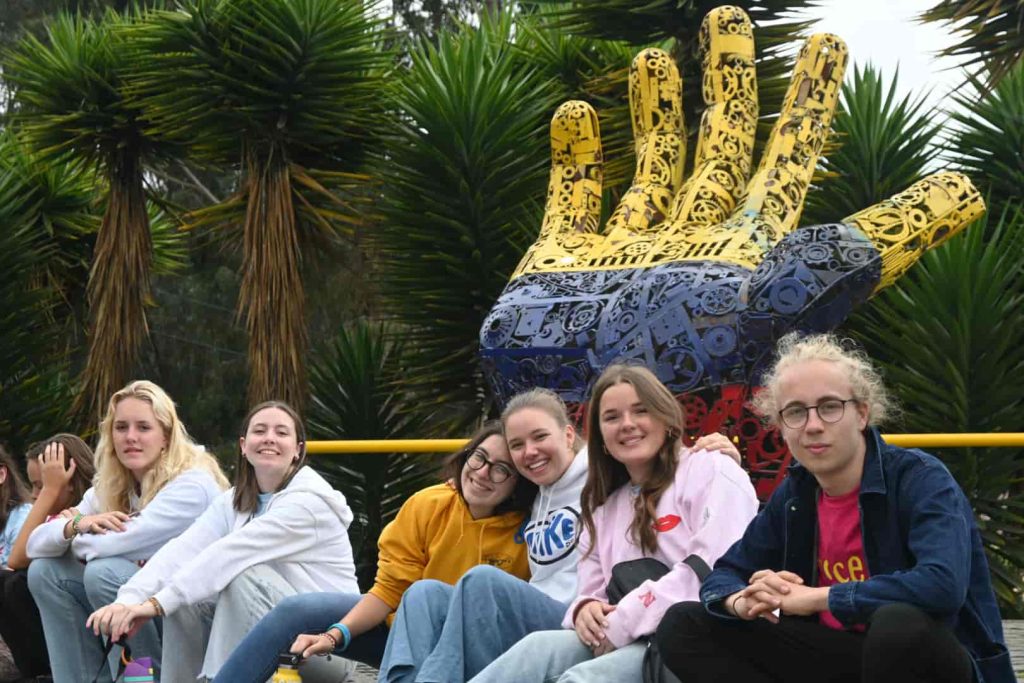
Staging is about learning the show …
Leni: I thought it was super cool. I’d never danced much before and I wasn’t in a choir either. It was so different compared to what I’ve done in my life so far.
Nele: I had a lot of fun dancing, having a show and bringing it to the stage. We didn’t just work a lot on the show during staging, but also in between and then always in the week before the showdays. It was intense, we went through all the lyrics again, rehearsed the music and the dances.
Jakob: On one of the first days during the staging, we were in the park in the evening and played music on the guitar as if we were street musicians, that was also a very special situation.
You were a small cast, perhaps the smallest cast ever with only 30 castmates. Some of us older cast members regretted that. How do you feel about that?
Jakob: Because we only traveled for three months, I thought it was very good that we were such a small cast. It’s difficult to really get to know 150 people, even during a whole year. I keep hearing that alumni meet “new” people from their own cast at reunions who they never really knew before. It will never be like that with us. Maybe five to ten more people would have been okay for the three months. But with us 30 participants from A23, we all, really all, knew each other very well. We became very close as a cast, probably closer than most casts before. I think you could say that we all became friends during the tour.
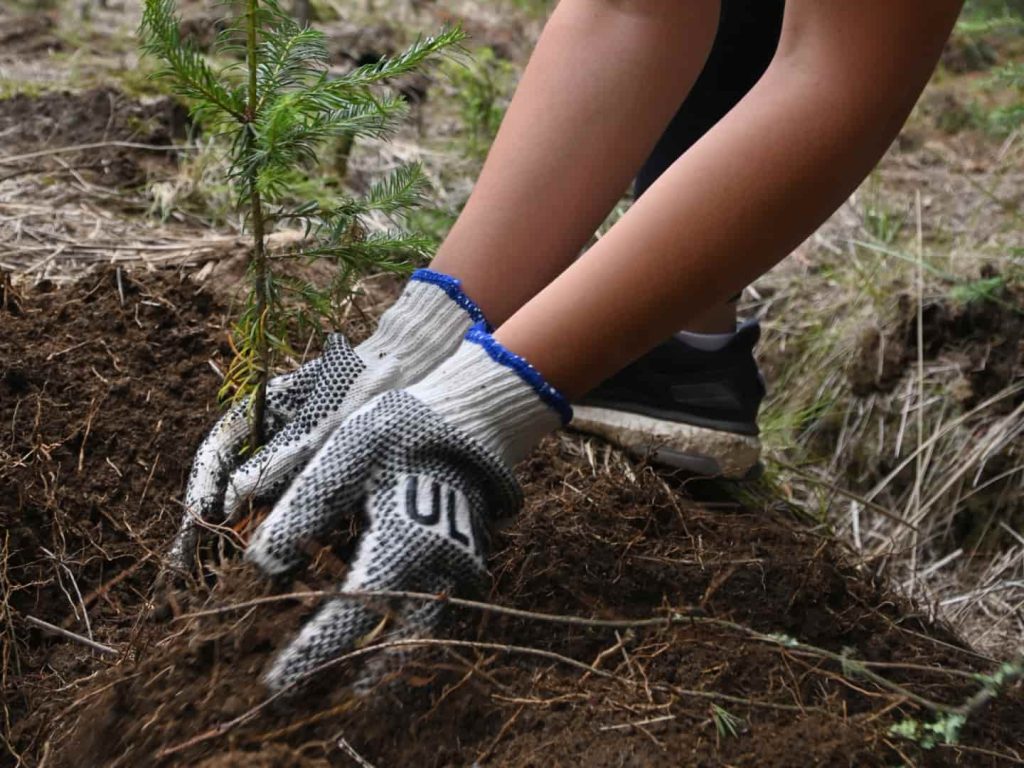
What made UWP special for you?
Nele: The variety of things you can do, the immersion in other countries and cultures and the very, very intense experience. I don’t think it’s comparable to any other program. You’re not alone, you’re in a cast and you build up an incredibly intense emotional bond with the other participants.
Leni: It was also special that we got to know so many different perspectives, for example during the Community Service Days. The program gave us a lot of time to just talk to each other – about our cultures, about political issues and many other things. At home, we mostly live in our bubble and are surrounded by similar perspectives and problems. But people in Mexico and Colombia have very different concerns to us.
Nele: I also thought it was very cool to be surrounded by so many creative people. Everyone tried things out and made art in every sense of the word. I wrote – mainly poetry – and danced and sang. Many of them designed, painted and drew during our free time.
Jakob: Another unique feature of UWP is the huge international network that you grow into. When previous generations traveled, there was a schedule for each city with the planned activities.
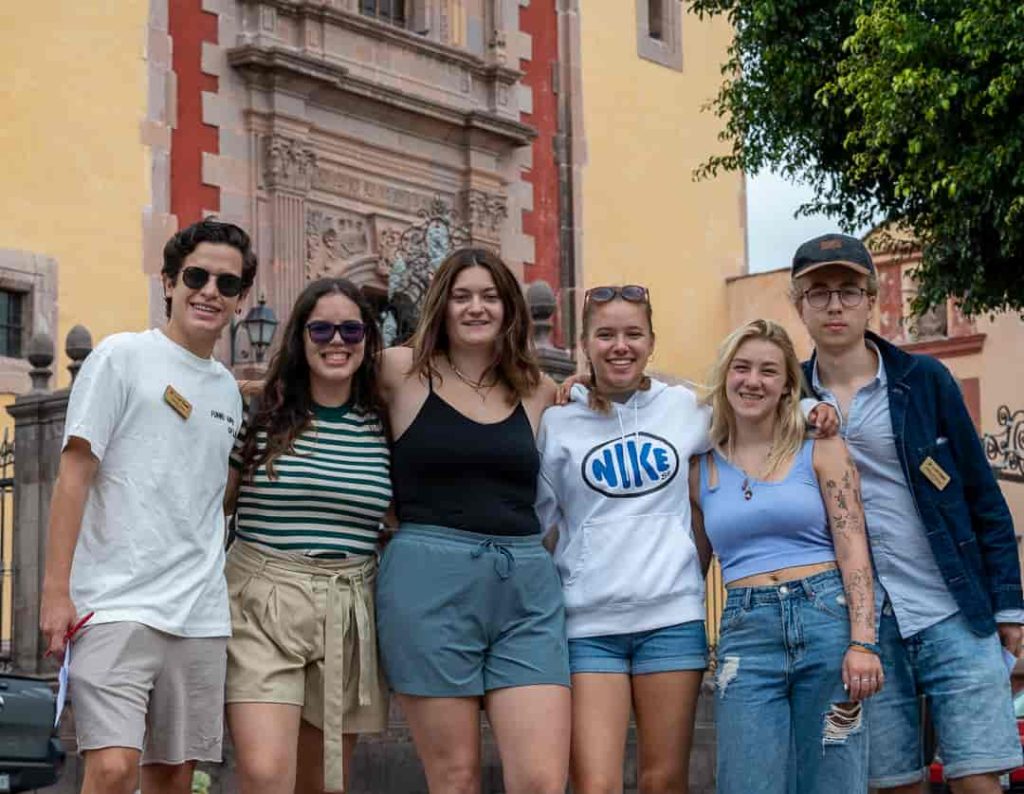
What was it like for you?
Leni: We usually got the plan for the next day the day before or the evening before. It told us when we had to be where, what we were going to do and how we had to dress. That was communicated relatively spontaneously.
Jakob: At some point, we also got weekly plans that were halfway there.
When you look back: What surprised you the most?
Jakob: Probably that everyone was so open, that everyone really had more or less the same mentality and were so nice to each other. I didn’t expect this close familiarity right from the start.
Nele: When I got back home, I got great feedback, namely that I radiate such an infectious openness. Realizing that I come across as so open was, I think, my favourite part.
Leni: For me, there wasn’t so much that surprised me, it was actually exactly what I had always imagined and wished for. Well, perhaps the elements that didn’t exist before were surprising: so many curriculum units or co-living. It was very different from our parents’ tours. Nele: I was also surprised by the curriculum. I don’t think it had even been mentioned in advance. At the beginning, I thought it was mega, mega cool. And the good team spirit in the cast was also a really big thing.
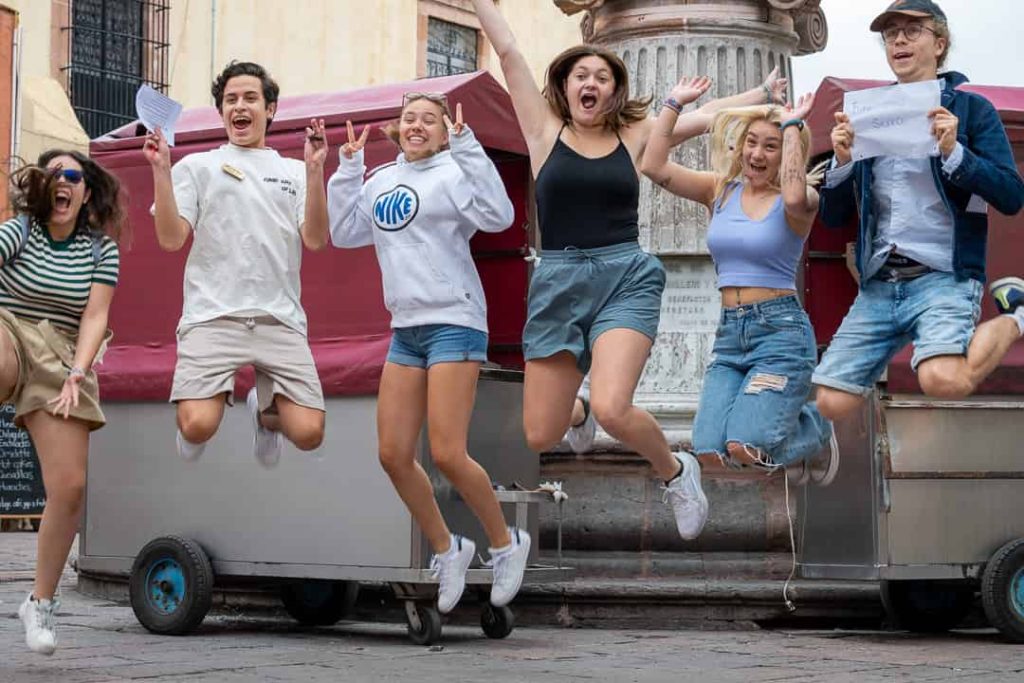
What exactly can I expect from the curriculum?
Leni: I think you also had something like that. You could perhaps translate it as “social and emotional education”. It was very different from school, where they say: ‘Okay, here are the facts, please learn them’. Instead, we learned a lot about how to interact with other people and how we think about certain topics.
Nele: We often worked on a given topic in groups. For example, we were given a presentation and then tasks that we had to solve, or sometimes games related to the topic. We had a lot of time for our journals, in which we wrote down what was important to us about a topic, what it meant to us and how we could take it with us into everyday life at home.
Jakob: The topics in the curriculum changed every day, for example one day it was leadership, the next day international citizenship and then there was another topic.
Is there a situation that you would have solved completely differently before UWP than with the experience you have now?
Jakob: I wouldn’t have gotten a tattoo.
Nele: Yes, the same for me.
Leni: I reacted differently to conflict situations at UWP because I knew I had the support of my cast, they would stand by me in whatever I said and did. I felt and still feel much braver to act myself and not just passively endure conflict situations.
Jakob: Yes, I approach situations much more proactively now. If I want to achieve something, I just do it without slowing myself down. I write an application or send a suggestion on how something could work better instead of just waiting. What you describe sounds like a great experience for you. Nevertheless, there were certainly also elements that you didn’t find so successful.
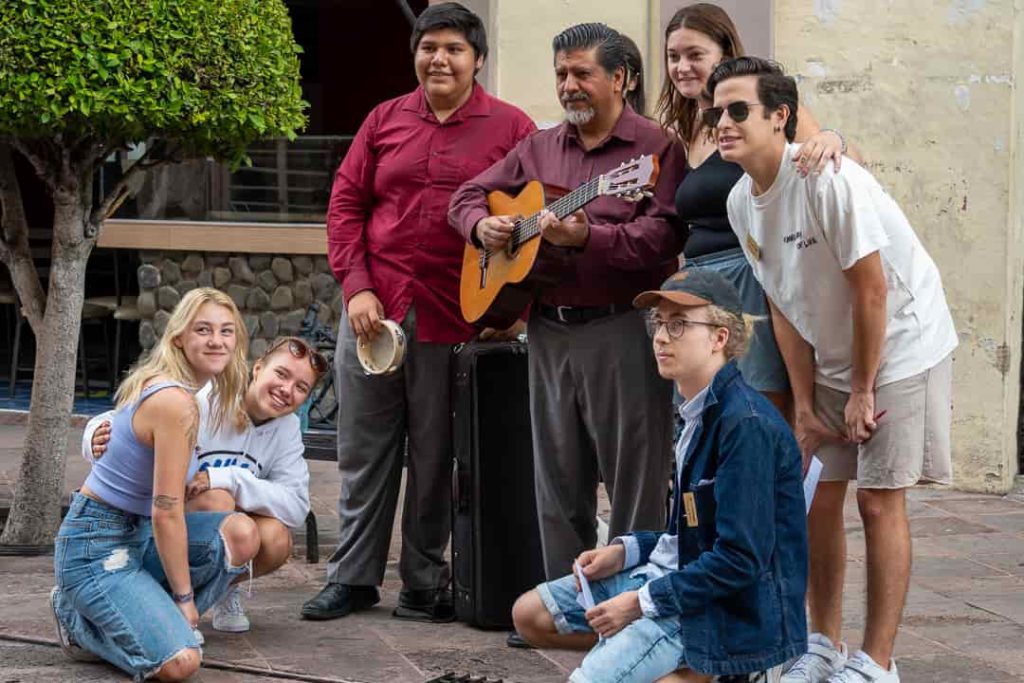
What should UWP do better on the next tours?
Nele: When planning the tour, it would be good to see more of the country you’re traveling in. For Costa Rica, I had hoped to experience a lot of nature and see animals. I would have preferred not to do a curriculum for a day, but instead to go somewhere and see the landscape or the culture. As good as the idea of the curriculum is, it sometimes became too long and even boring over the course of the tour. We only did volunteer work once or twice in each country, we could have done it more often. At least there was a scavenger hunt in each place, but there could have been more.
Leni: The old structures were still very dominant to some extent, as many of our staff members traveled themselves and transferred their experiences to our tour. But that no longer works today because our generation wants to have a say and make decisions in a completely different way. We sometimes felt that the program was already completely fixed, that we had no say and could not articulate how it could be better. After we voiced our criticism, however, things improved and sometimes more consideration was shown.
Do you have an example?
Leni: A very banal example of this was the way the show was handled. Again, the production favorites were allowed to do a lot, but other talented people were not. I don’t think you can do that anymore. Up with People needs everyone who wants to take part in the journey, so all participants should be involved as much as possible.
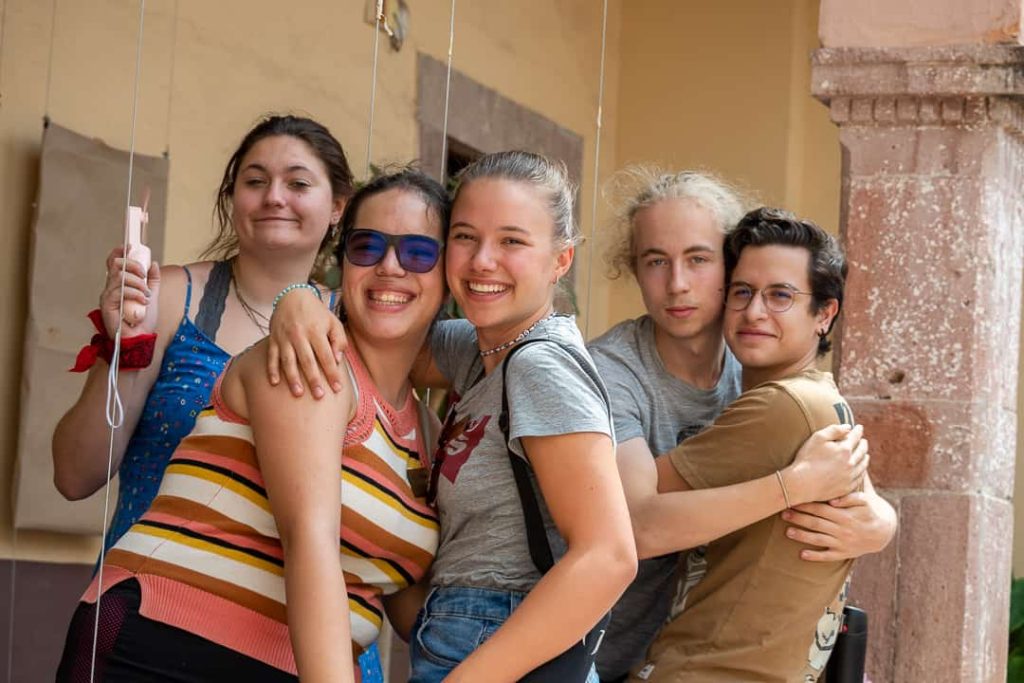
Let’s talk about your show “Voices”, which was also streamed for the first time and which we alumni were able to see live around the world. It was noticeable that your show changed during the three months. Did you also have a say in this?
Nele: We wanted to change some dances and also have some songs a little differently, more modern, with a different tempo or simply add another step to a dance. That was then heard at some point and we were able to change things a bit. It was cool when something changed, we had the feeling that we were presenting to the outside world what we had done ourselves.
How did you manage that?
Nele: For the dances, for example, there were workshops first in Colombia and then in Costa Rica, which were only led by cast members. They came up with dances for the songs and taught them to the rest of us. Another example is the song “Footsteps”. There was a part without vocals and Alejandra from Texas came one day and said she had written a poem that could fit thematically and in terms of length into this break in the vocals. From that day on, her poem was part of the song and she recited her poem on stage.
Leni, didn’t you also have a poem in the show?
Leni: That was planned. I had written a poem with our production manager Jen at the beginning of the tour, which was to be integrated into “Room for Everyone”. It didn’t work out for our show, maybe they’ll include it in the next tour. But it was really cool because we were able to be so actively involved. UWP really represents the voice of the younger generations.
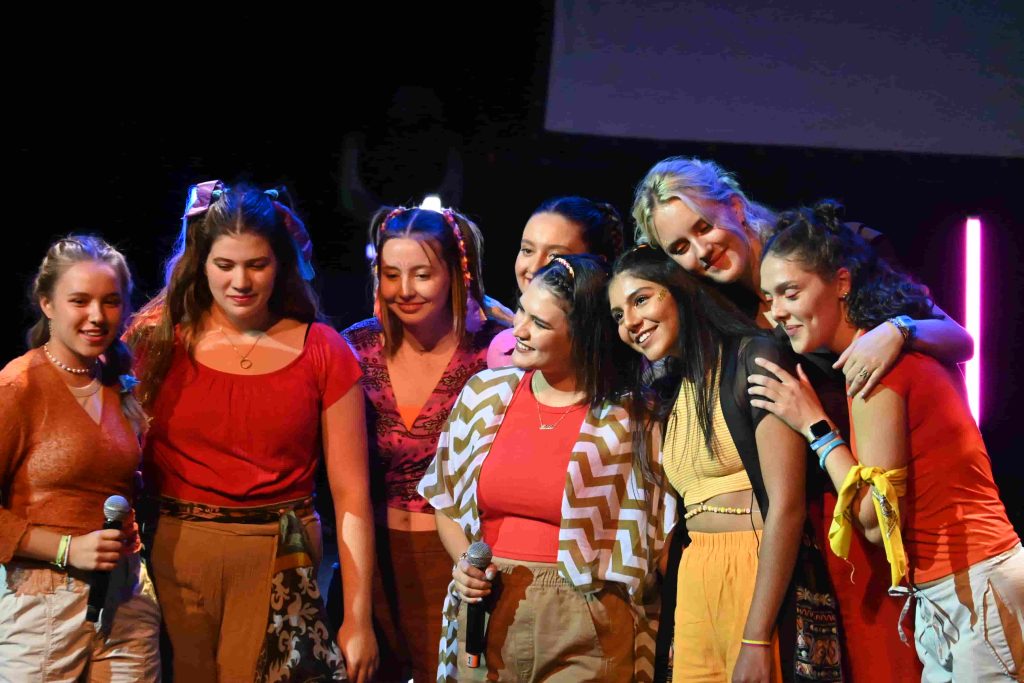
Did you also create new music during your tour?
Jakob: Five of us from Cast A 23 wrote and recorded a song together, which has now been released: “Wasted by Vans”. You can listen to it on Apple Music and Spotify. Let’s jump to the present:
Is UWP still present in your everyday life?
Nele: The mentality is still there. The openness, communication and creativity have stayed with me. And I internalized during the tour that it’s okay and safe to be who you are. You are liked for who you are and the people who like you will be there. All these changes in my mind and in the way I deal with any situation in life are very, very present for me, even though UWP no longer plays a role in my everyday life.
Leni: Even more so for me, I had three video calls for Up with People yesterday alone. After the end of our tour, I started working as an admissions intern for UWP, and recently I’ve also joined the production committee. I’m part of the songwriting group along with three castmates and a staff member.
Jakob: UWP also plays an important role for me. I’m an intern in UWP’s social media department and create videos for Instagram, Facebook and YouTube. I’m also on the UWP Youth Council. And when I plan trips now, Up with People is somehow always involved. For my next trip to Mexico, I’m not looking for a hotel but staying with friends. I’ve also asked for information in the international Up with People alumni group, which I find very nice and very, very helpful.
What would you recommend to someone who wants to travel with UWP now?
Nele: Just go in and get the best out of it that you can. “Open every door you possibly can.” Open every door that can be opened. Do everything you can and see what is important to you.
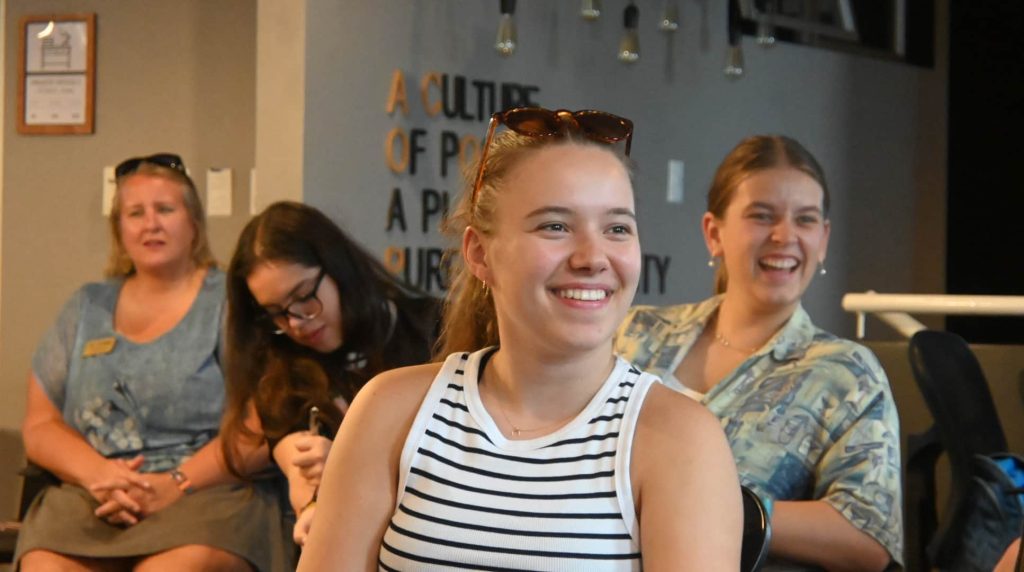
Thank you very much for your time and welcome to the German Alumni Association.
Bettina Dommnich
hopes to be able to conduct interviews with young alumni in the coming years. bettina.dommnich@gmx.de


